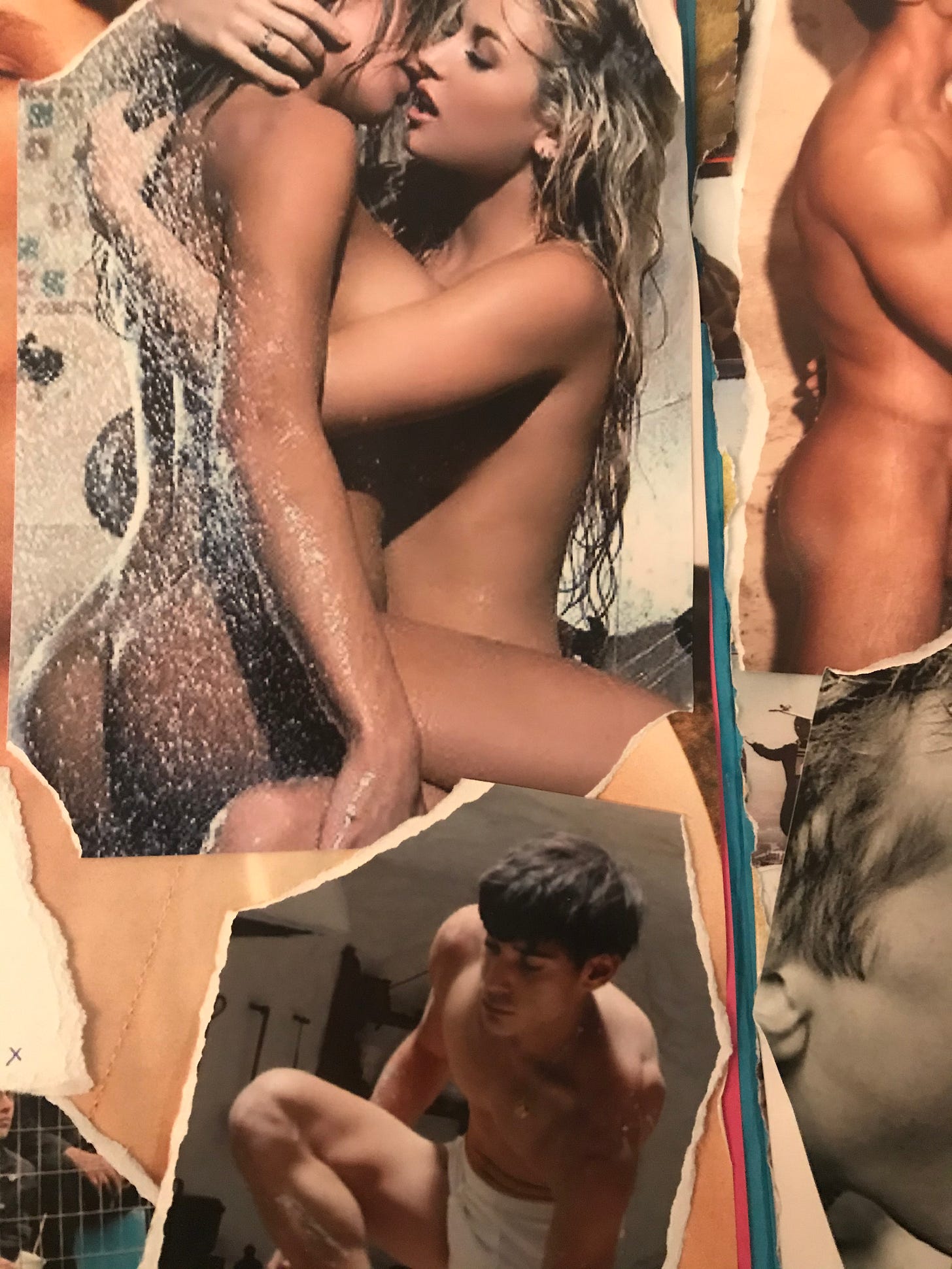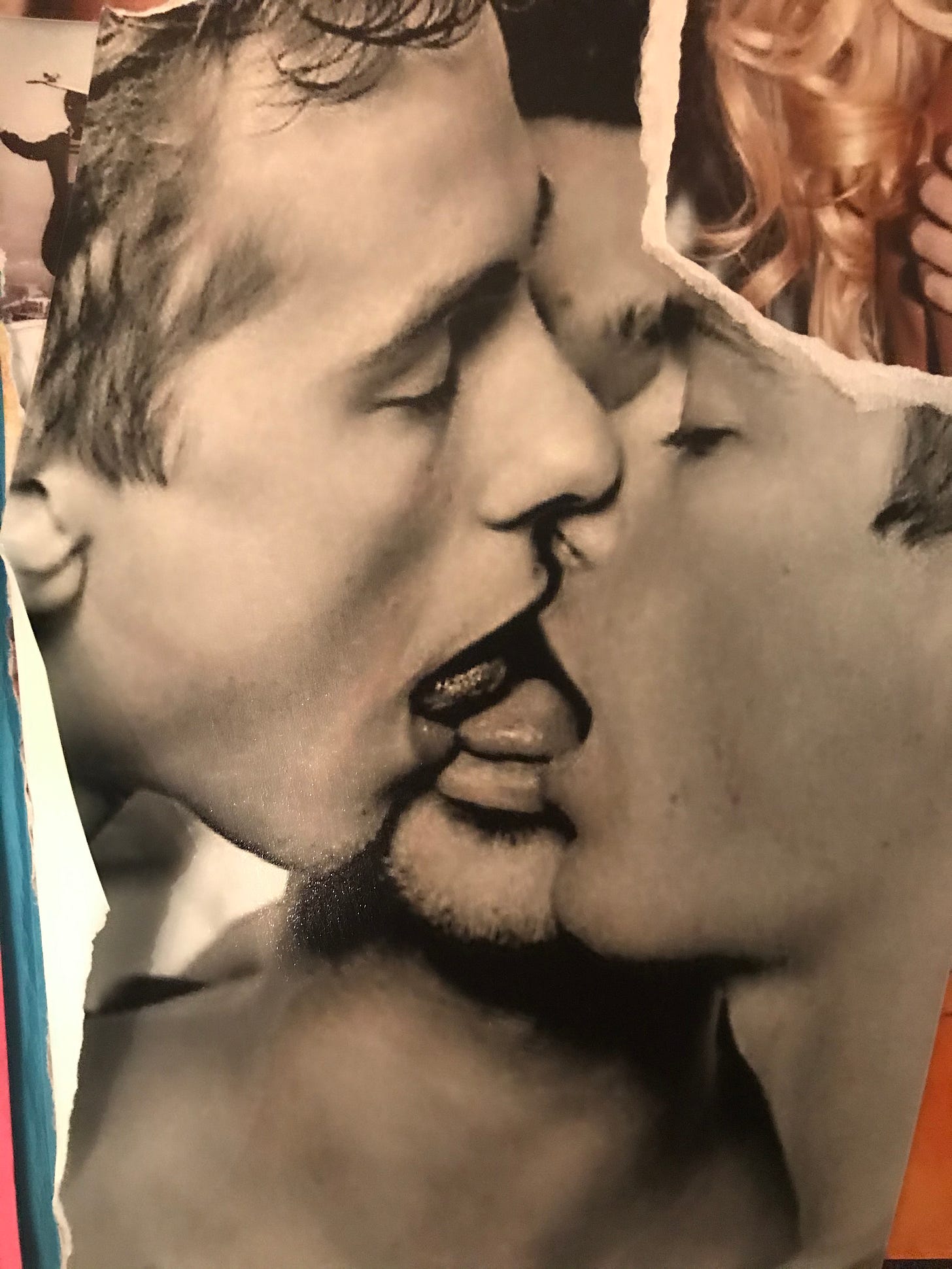The novel is in its flop era, according to Lake Micah. Perhaps, like my last column’s subject, it’s undergoing a glitchy metamorphosis in the process of becoming something else, with books from this time due a critical reassessment years from now when they’ve influenced everything printed. But I fear he’s not wrong.
Hard to pin down where Gavin Haynes stands on this issue. In his latest for Unherd, he interrogates the voice of our generation - that is millennial and perennially online. Central to his essay is Roisin Kiberd’s (former fellow publicist, solidarity) The Disconnect.
“2016, when the ideas for many of these essays began to take root, was also the year of my mental breakdown,” she writes near the beginning of the collection. Guess there was a pandemic before the ongoing one, publicists everywhere losing grip (crying in the club is the first sign of what’s to follow). Kiberd felt like she belonged online once until life itself began to feel unreal, subservient to the virtual, and then the internet itself took a dark turn. As former Bookslut (I miss it so fucking much!) Editor-in-Chief Jessa Crispin put it in The Spectator, before the different feeds we cannot stop scrolling through made us ill, the promise of the internet was that “you could be your own bizarre, inappropriate self, and you would find a community of the likewise bizarre and inappropriate.”
Where does the obsession with enshrining an author as the voice of the generation come from? And is it fair for someone to shoulder the weight? I first encountered the term in the 00s, when it was being thrown around for Melissa P (I get it, it’s Bad Sex in Fiction stuff, but 100 Strokes was fun, even in its cheesiest moments). What happens after you’ve been crowned the voice of your generation? Are you entrapped in the time you’ve reflected in your work forever? Can you ever grow as an artist, or do you have to play out the exact same sentiments that got you the distinction for diminishing returns?
Chicago Review Managing Editor Adam Fales brought my attention to Hard Lards, a “masculinity simulator” video game and adaptation of the endlessly tweeted video I previously covered. The concept here feels not only void of the fun and devil-may-care attitude of the lads that graced it in the first place, but also abject, alienating.
“The reason everyone likes it is cos they’re hot and look like they’d be fun on a night out,” a friend tells me of the original. I’d add it’s the element of human connection too, even if it’s the sort that leaves you with a broken rib or sees you flying into a puddle of broken glass.
What I’m trying to say is I’m looking forward to one of my friends hitting me with a chair at Blondies in two weeks.
Interview Magazine spoke with the NYC duo bringing print back into cultural relevance. “I wonder who does their PR,” I text a friend when I see the New York Times has covered them only two days after Rachel Tashjian included them in her quaranzine story for GQ. [The only positive about shuttered bars has been that I haven’t offered to do PR for people when I’m drinking]. I still haven’t read an issue other than random fragments shared across IG stories, tweets and word of mouth.
At the end of 2020, Harvey Day plastered one of my walls with a collection of collages from magazine cutouts. He delivered again for my birthday, this time with the world’s horniest birthday card [some of it too NSFW to insert here].
Along with the perv bday card, I got issue 5 of Civilisation, a few weeks after everyone in New York and beyond lost it over the infographic featuring the bold and the beautiful of the city. Highlights: Sean Thor Conroe, Jake Levy and Dan Colen (?! Spill it, who’s slept with him?). It reminded me of a group of lads at University who created a wall-to-wall connect-the-dots, tracing who had slept with whom. Will never, ever be a fan of list-making, whatever form it might come in. I’m waiting to see who will announce a project to interview everyone featured. Like Artforum’s Artists on Writers, but it’s the most batshit crazy questions imagined. Someone’s bound to, right?
Back in the world of legacy media, The Paris Review announced its new editor (or CIA agent, according to Blake Middleton, who’s “working on his tan” and “reading Cioran on his days off” HOT), Emily Stokes.
“Emily will honor the Review’s tradition of discovery, I believe she’ll publish distinctive work in a distinctive way, with courage, subtlety and style,” reads the press release. Kyle Brown’s the dealbreaker, soz Em!
The announcement reminded me of the menswear reshuffle pic from a few years ago, but let’s be honest, there will never be such a major shakeup in these magazines, nor does anyone care enough to make a JPEG tracing which editor is off to where.
I had a recent experience with the show, don’t tell crowd. It was a sentence that has forever been lost to me now, the result of never, ever saving older versions of my work. This is it in its current format: “We broke into a sprint, a wave of vans jumping off the pavement, fingers stretched out and arms swinging like pendulums on speed. By the time we were at the park, our shoulders were hot to the touch, our skin from collarbone to above the elastic bands around our waists reflecting the colours of the sun.” Pretty certain the original was about me and my friends getting sunburnt after running in our underwear on a dare. These are the people that track comments like “I don’t think readers will believe this person to be real, even if he is.”
Cat Marnell went on Everything is Fine to talk about her return to New York, how much drugs took away her energy and her reign as a Beauty Editor. The hosts thanked her for disrupting beauty events: “I love that you were a mess.” [Anyone who says that trade events are fun or can ever be fun has never had a friend]. Marnell goes on to say she’s obsessed with the “Predators in Chief.” Maybe she’ll take the helm somewhere herself one day, glitter bombing NY media.
Speaking of dream gigs, who would you profile and for what publication?


Some dream interviews I’d love to read: Elias Tezapsidis on Knausgaard for Harper’s, Philippa Snow on Sheila Heti for Bomb and Alastair Curtis on Dennis Cooper for The Believer.
As far as great interviews go, Dasha Nekrasova in Long Voyage is it: “If you can buy anything, the logical conclusion of that is placing a price on human life,” she says, echoing Angela Nagle on Red Scare: “Once you make individual freedom the absolute centre of your moral and political universe, you are free to be cruel.” Nekrasova talks of her vow of celibacy during filming her debut [BFI bring this film to London, or retire bitch], loving Climax by Gaspar Noe, the process of filming jet-lagged and whether we’re living in “an apocalyptic culture or a post-apocalyptic culture.”
File Under Fashion

Sorry lads, it’s thigh season.
Geoff Mak, who’s trading in Berlin for New York, dropped by The Guardian to write about fashion’s ongoing “identity crisis.” The old guard no longer possess power, he writes, and fashion, during the pandemic, has been reduced to something that’s less about the clothes themselves and has moved towards something “weirder.” He considers fashion more contemporary than contemporary art and radically avant-garde, echoing 00’s philosopher Blair Waldorf: “Fashion is the most powerful art there is, it’s movement, design and architecture all in one. It shows the world who we are and who we’d like to be.” What am I showing the world in Bershka black shorts and an oversized black sweater skating in Clapton?
Mak’s essay collection Mean Boys is forthcoming from Bloomsbury in Winter 2023. Judging by his piece Edgelords, it will be the hottest book in the world (are you bored of this yet?).
Dean Kissick’s latest Downward Spiral at Spike Art Magazine was all about NFTs (which he also decoded on Red Scare): “It’s a very boring sort of outsider art, made by nerds for other nerds.” Sort of like the Hard Lads fiasco then. Kissick feels that everything is now a cheap imitation of an original (a sentiment shared by Manhattan Art Review editor Sean Tatol, whom I interviewed at the beginning of the year). It’s “the poetry of a dying civilisation.” Art, as it stands, has no room for artistic breakthroughs precisely because everything is tasteless, mediocre, the result of never-ending content and a culture of competition for clicks.
Chemtrails Over The Country Club is finally out, but Lana has already departed, new album Rock Candy Sweet dropping on June 1st. Rob Doyle has written an as of yet unpublished piece titled I Review My Reviewers. “I didn’t take LDS until I was 25,” he says on Wolf Portal, “I’ve only taken it 8, 9 or 10 times.” Described by the host as a “master of articulation”, he talks being on shrooms during his cameo on Here Are The Young Men and metabolising his depression into art. Christian Lorentzen dissected the “careerist” author for Bookforum via the new Philip Roth biography, in the process exploring the effects of cultural sanitisation and the current trend of idealised fictional selves. Patrick Nathan lost his New York Times V-card with a fiction review. He also won’t be inviting writers to dinner parties. Paul Dalla Rosa had his Granta debut with short story In Bright Light. Vivian Gornick thinks James Salter’s A Sport and A Pastime is overrated and that Geoff Dyer’s best book is Out of Sheer Rage (I haven’t read it, but this reminds me I haven’t read Anais Nin’s study of Lawrence either). Sam McKinniss was profiled in GQ in the form of a love letter. Seems like March was the month of fan mail, with Amanda Fortini sliding (bets on who it is are open). Frieze Editor Matthew McLean is hot for Josh Hartnett again. Commonweal Editor Matthew Sitman says he wants a sabbatical. I want to give Xanthi Barker another lap dance at her book launch.
Previously in stating the obvious:
Diarmuid Hester, whom I previously described as “a thinking man’s Tom of Finland character,” went on Bad Gays to discuss his critical biography of Dennis Cooper. The reasons people don’t like Dennis Cooper, he believes, is because the reading experience is different to current books that centre on homosexuals. The readers are “held to account for their gleeful enjoyment of sadistic violence.”
Elsewhere, he brings his usual, poetic touch: “As a writer, you will always end up being, whether you like it or not, dominated by what you were reading when you were about sixteen.” I guess the triad of Nin, Miller and Adair will always be my home (although recently they’ve been largely replaced by Doyle, McBride and Louis).
On Tuesday, we skate down to the park. I tell Sophia I can’t stay long cos I have to write this column, to which she responds: “The sex one?”
In linguistic trend news:
I guess I’ve got a lot of editing to go through.
Honor Levy has a piece in Civilisation titled Do It Coward.
“Maybe you are wondering something like Do I have a problem or am I a problem. MAYBE I want to be The Problem, because then I’d be something.”
That’s voice of the generation stuff right there.










thank you <3
Thanks for the mention / link to Long Voyage Home!